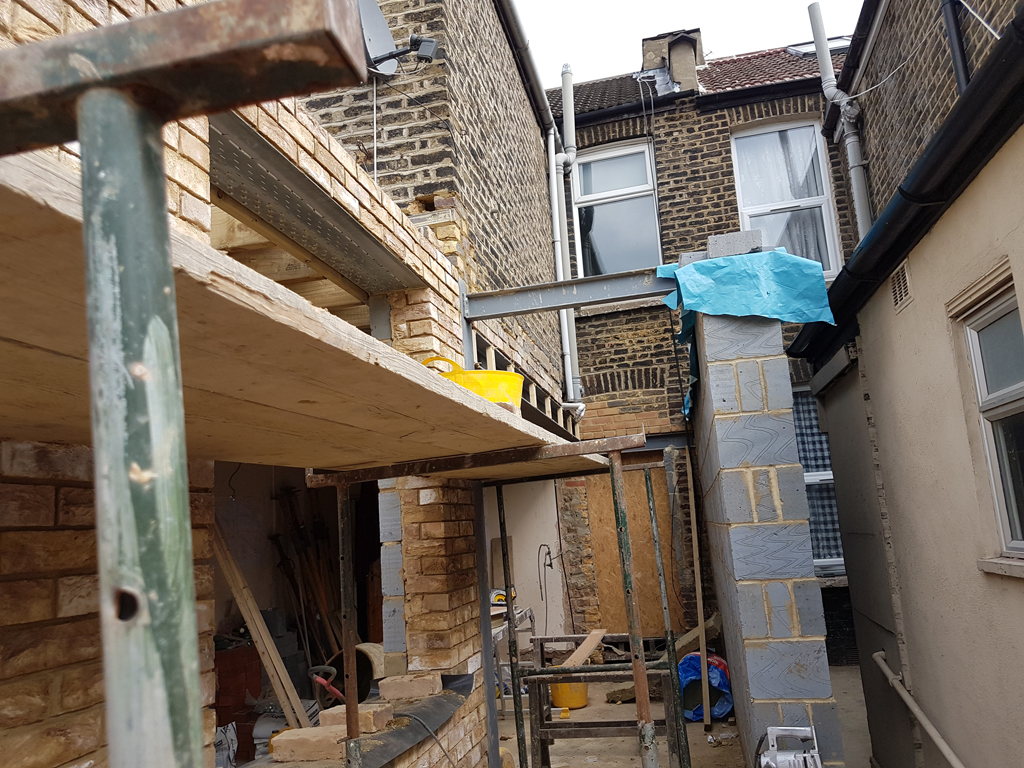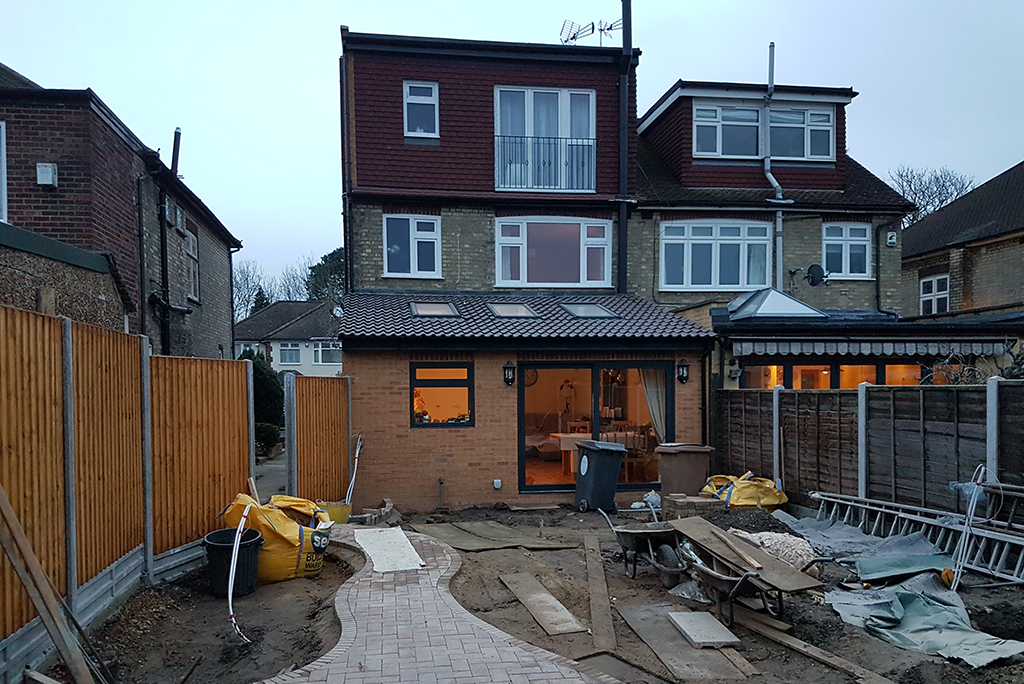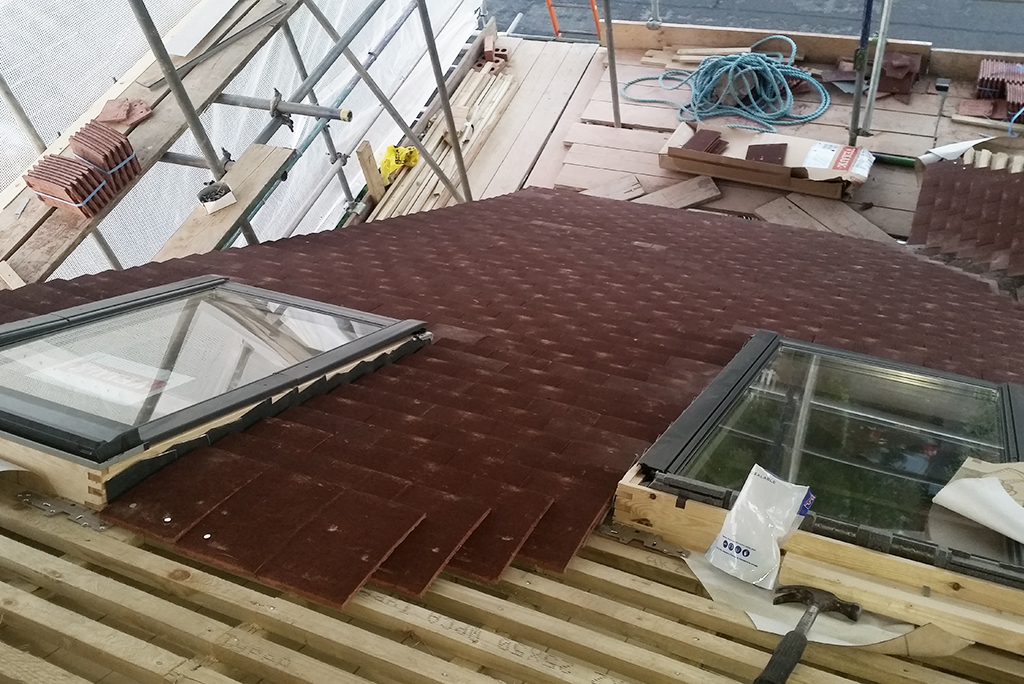Party walls are crucial in construction and property law, marking physical or close boundaries between properties, like shared walls in semi-detached and terraced houses or floors in flats. Governed by the Party Wall etc. Act 1996 (England and Wales) or similar laws elsewhere, Party Wall Awards for loft conversions or house extensions are especially important: the legislation aims to prevent and resolve disputes by setting a formal notification process and outlining rights and obligations of all parties involved. Party walls ensure property integrity, promote good relations, and provide legal means to address disputes, emphasizing responsible building and mutual benefit.
Navigating the complexities of Party Wall Agreements is key for a smooth loft conversion in East London. In this post we explain the party wall surveyors’ role, steps required to obtain a party wall award, and its vital components, ensuring you’re well-informed and prepared for your home improvement journey.

Understanding Party Wall Agreements
The types of work covered under the Party Wall etc. Act 1996 include: alterations to a party wall, building a new wall on the boundary line between properties, and excavation near neighbouring buildings to a depth that is lower than their foundations. This ensures that any construction or alteration work does not negatively affect the structural integrity or rights of adjoining property owners.
The role of party wall notices is essential in the party wall process. These notices must be served by the property owner intending to undertake the work, to all adjoining property owners, informing them of the planned work. Notices should be served well in advance of the start of work – at least two months for alterations to a party wall or construction of a new wall, and one month for excavations. The notice gives the adjoining owners the chance to agree with the work, disagree, or suggest an alternative. If the adjoining owners do not consent, then the parties will need to appoint a party wall surveyor to prepare a Party Wall Award, outlining the manner in which the work should progress, and addressing any other related matters.
The Role of Party Wall Surveyors
A Party Wall Surveyor is a professional who specializes in resolving disputes arising under the Party Wall etc. Act 1996. Anyone can be a Party Wall Surveyor, provided they are not a party to the work. This means the surveyor cannot be the same person as the property owner undertaking the work or the adjoining property owner. Ideally, the surveyor should have a thorough understanding of construction practices and be knowledgeable about the legislation concerning party walls.
The process of appointing a surveyor(s) begins once an adjoining owner dissents to a Party Wall Notice or fails to respond within the stipulated period. Each owner can appoint their own surveyor, or both owners can agree to appoint a single ‘agreed surveyor’ to act impartially on behalf of both. If each owner appoints their own surveyor, those surveyors will then select a third surveyor to adjudicate any disputes that might arise. The appointment of a surveyor must be in writing and include the surveyor’s contact details and terms of appointment.

The duties and responsibilities of a Party Wall Surveyor include:
- Thoroughly examining and assessing the proposed works to ensure they will not adversely affect the adjoining properties.
- Preparing a Party Wall Award that outlines the manner in which the work should be carried out, working hours, and measures for preventing damage. The award may also include a record of the condition of the adjoining property before the work starts, to handle any claims of damage.
- Ensuring that the proposed works comply with the Party Wall etc. Act 1996 and any other relevant legislation.
- Acting impartially to ensure the interests of all parties are considered and protected throughout the process.
The role of a Party Wall Surveyor is crucial in preventing disputes between neighbours and ensuring the smooth execution of construction works that affect party walls or property boundaries.
Key Elements of a Party Wall Award
Party Wall Award includes several key elements to ensure that the interests of both parties are protected and clearly communicated. Here’s an overview of what is typically included:
- Details of the Work: A precise description of the proposed construction or alteration work that will affect the party wall or boundary. This includes the start and end dates, work methods, and any specific precautions to ensure minimal disruption and damage.
- Schedules of Condition: The importance of Schedules of Condition cannot be overstated, as they play a vital role in protecting both parties. These are comprehensive records of the existing state of the buildings or structures adjacent to the construction before work begins. Photographs often accompany detailed descriptions to document any pre-existing damage or issues. Schedules of condition are crucial as they serve as a baseline for assessing any new damage that might occur due to the construction work, ensuring that any disputes can be resolved more easily. By providing a clear ‘before’ picture, they help avoid conflicts over damage claims, ensuring any post-work damage can be accurately attributed and fairly addressed.
- Rights and Obligations: The rights and obligations outlined in the Award ensure that both parties are aware of their responsibilities and entitlements, promoting a transparent and cooperative relationship. This clarity helps to mitigate potential conflicts, making the construction process smoother for both parties involved. For the party initiating the work, this might include the right to conduct construction under certain conditions, while ensuring the work does not cause unnecessary inconvenience or damage to the adjoining owner’s property. For the adjoining owner, it specifies their rights to protection from damage and the assurance of repairs at the expense of the party carrying out the work, should any damage occur.
- Dispute Resolution Mechanisms: It also details the process for resolving disputes should they arise during the course of the work. This often involves a procedure for assessment by an agreed third-party surveyor, who can make binding decisions on any disagreements.

The Process of Obtaining a Party Wall Award
Party Wall Award process involves a number of steps from serving notice to obtaining an award. And it is crucial to understand each step, the expected time-frames, and how to handle disputes. Here’s a short guide detailing every step:
- Serving Notice: The journey begins by formally notifying the other party of your intentions. This notice should clearly outline the proposed works and your legal basis for carrying out these actions. Expect a response within a period of 14 to 28 days, depending on the specific regulations or agreement terms.
- Response Period: After serving notice, the other party has a window to consent or dissent. A lack of response typically defaults to dissent. This phase is critical for setting the tone of the proceeding steps, so proactive communication is encouraged.
- Appointment of Surveyors: If dissent is expressed or implied, both parties must appoint surveyors within 10 days to draft a fair award. This can be a single agreed-upon surveyor or one each. This step might take several weeks, as it involves thorough examination and negotiation.
- Survey and Report: The surveyor(s) will assess the proposed work, considering structural impacts, access rights, and any potential risks. They compile their findings in a report, usually within 2 to 4 weeks, which includes recommendations for proceeding safely and fairly.
- Drafting the Award: Based on the survey, the surveyor(s) will draft an award. This document outlines the rights and duties of each party, the scope of work approved, and any protective measures for the adjoining owner. Drafting can take 1 to 3 weeks, depending on the complexity of the project.
- Issuance and Appeal of the Award: Once the award is drafted, it’s issued to both parties. There’s typically a 14-day period in which either party can appeal the award in the courts if they believe it to be unfair.
- Commencing Work: If there’s no appeal, work can commence as outlined in the award. The timeframe for completion will vary based on the project scope.
- Handling Disputes: Disagreements may arise either during the surveying process or after work commences. It’s crucial to attempt resolution through discussion first. If this fails, mediation by another surveyor or legal intervention might be necessary.
Throughout the process, maintaining open lines of communication is key to resolving disputes amicably. If disagreements escalate, consider involving a mediator before resorting to legal proceedings, as this can save time and reduce costs. Understanding these stages and preparing for each can smooth the path to obtaining your award and successfully completing your project, minimizing delays and disputes along the way.
Commonly asked questions
What should I do if my neighbour does not respond within the 14 days?
Should you not get a reply from your neighbour within the 14 days, or if they are otherwise unreachable, it’s treated as a dissent, and you’ll have to appoint a Party Wall Surveyor to mediate any disputes related to projects such as loft conversions or house extensions in East London (or anywhere else in UK).
The surveyor is responsible for creating a balanced award that serves the interests of both you and your neighbour, outlining the manner in which the works will proceed.
What happens if my neighbour and I have a good relationship, but they still object to the Party Wall Notice?
It’s not uncommon for neighbours who have an amicable relationship to request a formal Party Wall Agreement. Even if they verbally express approval for the construction, they may still formally dissent, prompting the need for an agreement. This is a precaution to ensure their property is protected and that there are clear, documented terms for how and when the work will be executed.
Who is responsible for covering the costs of the Party Wall Surveyor?
Typically, as the property owner undertaking the loft conversion, you are expected to bear the surveyor’s fees. In an ideal scenario, both you and your neighbour will concur on appointing a single surveyor. However, if your neighbour prefers to hire their own surveyor, you will be obliged to pay for both surveyors’ services.
Do you offer assistance with Party Wall Agreement?
Our goal is to streamline your loft conversion process, offering guidance on Party Wall Agreements and additional planning prerequisites. With extensive experience assisting London homeowners in establishing Party Wall Agreements while preserving positive neighbourly ties — so much so that neighbours often request our services for their own conversions subsequently — we’re well-equipped to support you.
Beyond offering advice on establishing a Party Wall Agreement, we’re also ready to connect you with Party Wall Surveyors. Reach out to us today for complimentary, no-obligation advice regarding your loft conversion’s Party Wall matters.
By clicking on this link, you can check the sample Party Wall Award. Please note that, while the main parts remain similar, this document will be uniquely adapted to each circumstance.



